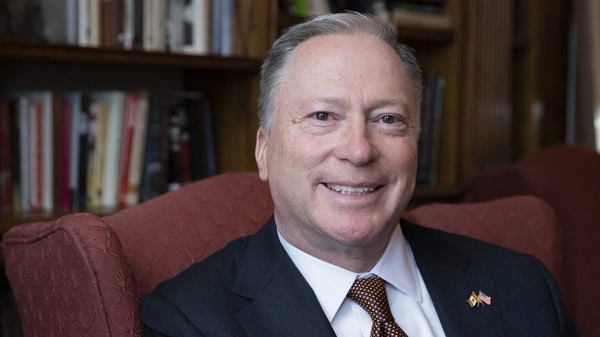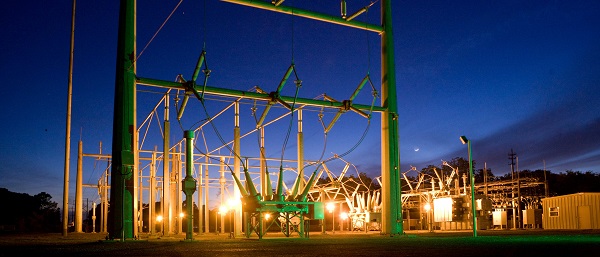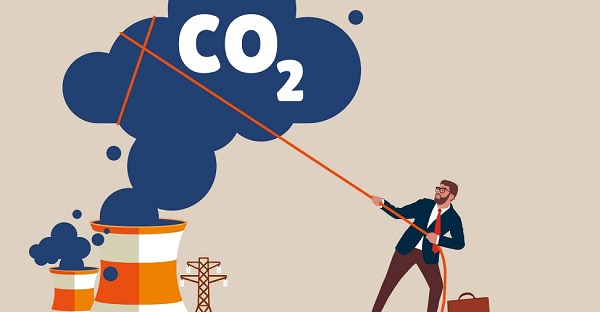Alberta
All Canadians should know what this Calgarian is up to!

Submitted by Scott Cameron of Bassa Social Innovations
Get to know your neighbour.
You might be surprised how they’re changing the world.
#visioncanada2119
I’ve known Steve for the past year. He’s one of the first guys I met when I moved to Calgary and, as part of a small group of friends, someone that I get together with quite regularly for group dinners, birthdays and vacations – spent an amazing few days on the west coast sailing with he and his wife earlier this summer. Until today, I only had a hint of what he does.
Steve is an entrepreneur and a passionate energy sector guy. Like many Canadians, I’ve tended to glaze over when these guys start talking about their work. I’m a social sciences and former government sector guy – I had energy sector guys in my family and never really conditioned myself to understand what they did. I decided to change that and chose to take an hour out of my day to visit Steve in his shop here in SE Calgary.
He had another visitor in the shop with him that morning. A fourteen-year-old, middle school student that learned about Crossfire (the name of the technology) from her parents and decided to investigate it as part of her science curriculum. I’m glad she did. She took me over to a whiteboard at the front of the shop and used the schematics already drawn to explain how Steve’s invention (Crossfire) makes it possible to use solar energy to power a small air compressor (93% efficient) that controls the pneumatic valves at natural gas and oil wells making it possible for the site to eliminate emissions. Cool.
I’m not even going to attempt any further explanation because, well, I’m a social sciences guy. I learned a few things as a result of my visit today – that Steve is one of many Canadians investing their life savings into entrepreneurial ventures to make the energy sector greener, that the political and policy environment appears to be working against these innovations, that innovations of this nature won’t just improve the sector here but is gaining traction globally, and that a fourteen-year-old student has the intellect to understand and explain the technology to an old guy like me (because I chose to listen).
I also heard, firsthand, how this work can be frustrating and “profoundly discouraging” when it feels like the systems are stacked against innovation and political responses are filled with rhetoric. Innovation feels like a nice idea but appears to be tough sell politically. For now, it’s the courageous entrepreneurs that are taking up the cause and making stuff happen.
I’m encouraged by Steve’s work and glad that he has such a keen mind and passion to improve efficiency in the sector. He notes that “when given the challenge, we rise to the occasion”. Imagine the country we’d be if we adopted that attitude across industries – and I don’t necessarily think we’re far from it. Remember, I’m a social sciences guy writing about innovation in the energy sector – imagine the impact if people from across sectors chose to align for the purpose of building a nation to support our people, our progress and our planet. We need to support one another. We need a new narrative Canada. Let’s build that narrative together at #visioncanada2119.

Scott Cameron is the former Social Planning Manager at The City of Red Deer, and before that he was Executive Director of The United Way of Central Alberta. He now lives in Calgary.
bassa Social Innovations is a values-based and principled consulting firm committed to positive social well-being for people, their families and their communities. We can help navigate the shared, and sometimes divergent perspectives of government, corporate, non-profit and community organizations to unravel social complexity, and explore collaborative and sustainable social change.
The term ‘bassa’ comes from the world of music, and basically means to play or sing an octave below what’s written. That’s how we describe our work – we work collaboratively to understand what isn’t obvious on the surface. The metaphor goes one step further…the bass note is the foundation of the chord and we seek to create foundational work that serves our clients in the present and future.
Alberta
Click here to help choose Alberta’s new licence plate design

Your province, your plate
For the first time in more than 40 years, Alberta is refreshing its licence plate with a Strong and Free motto, and the final look will be decided by Albertans.
From Oct. 15 until Nov. 5, Albertans can take part in a tournament-style online vote for a new provincial licence plate design that proudly reflects who we are every time we hit the road.
The new licence plate will be available in late 2026 and will be based on a “Strong and Free” theme, echoing the Latin motto of our province and reflecting Alberta’s bold identity, economic strength and deep-rooted provincial pride. The motto’s inclusion on the licence plates will also serve as a nod to Canada’s national anthem and Alberta’s position as a strong and sovereign province within a united Canada.
“From our wide-open landscapes to our entrepreneurial spirit, Alberta has so much to be proud of, and our new licence plate will reflect that pride. For the first time in four decades, Albertans will choose how we tell that story. I look forward to seeing which design is selected to show the world that this is the land of the strong and free.”
With options that include famous Alberta landmarks such as the Three Sisters Mountains, and long-standing symbols of our province’s core industries including agriculture and energy production, the potential plates each contain symbols of Alberta’s beauty, history and spirit.
In the first phase of voting, Albertans can vote for their favourite of eight unique concepts that incorporate Alberta’s unique landscape and history. Following the first phase, four designs will advance to the next round of voting where the top two will be selected, and subsequently, there will be a final vote for the winning plate concept. The winning new licence plate will be announced during the fall session of the legislature.
“Alberta is strong and free, and Albertans will have the opportunity to choose a new licence plate that captures that spirit. The new licence plate will be a fresh design that every Albertan will be proud to show off, whether they’re driving to work, heading to the lake or exploring North America.”
If an Albertan wants to replace their current plate for the new licence plate once it is released, they can voluntarily pay a $28 fee. Alternatively, Albertans could obtain a new plate on their vehicle registration renewal date at no additional cost. Motorists may also continue using the previous licence plate once the new licence plate is brought onboard, provided it is still in good condition.
Quick facts
- Alberta’s current licence plate was designed in 1984.
- In 2021, Alberta began a transition from painted to reflective plates with the same design.
- The new designs each incorporate reflective technology to improve readability for law enforcement and automated systems in low-light conditions, and also meet international standards for visibility, legibility and counterfeit resistance.
Related information
Licence plate designs. Click link above to vote
Alberta
Enbridge CEO says ‘there’s a good reason’ for Alberta to champion new oil pipeline

Enbridge CEO Greg Ebel. The company’s extensive pipeline network transports about 30 per cent of the oil produced in North America and nearly 20 per cent of the natural gas consumed in the United States. Photo courtesy Enbridge
From the Canadian Energy Centre
B.C. tanker ban an example of federal rules that have to change
The CEO of North America’s largest pipeline operator says Alberta’s move to champion a new oil pipeline to B.C.’s north coast makes sense.
“There’s a good reason the Alberta government has become proponent of a pipeline to the north coast of B.C.,” Enbridge CEO Greg Ebel told the Empire Club of Canada in Toronto the day after Alberta’s announcement.
“The previous [federal] government’s tanker ban effectively makes that export pipeline illegal. No company would build a pipeline to nowhere.”
It’s a big lost opportunity. With short shipping times to Asia, where oil demand is growing, ports on B.C.’s north coast offer a strong business case for Canadian exports. But only if tankers are allowed.
A new pipeline could generate economic benefits across Canada and, under Alberta’s plan, drive economic reconciliation with Indigenous communities.
Ebel said the tanker ban is an example of how policies have to change to allow Canada to maximize its economic potential.
Repealing the legislation is at the top of the list of needed changes Ebel and 94 other energy CEOs sent in a letter to Prime Minister Mark Carney in mid-September.
The federal government’s commitment to the tanker ban under former Prime Minister Justin Trudeau was a key factor in the cancellation of Enbridge’s Northern Gateway pipeline.
That project was originally targeted to go into service around 2016, with capacity to ship 525,000 barrels per day of Canadian oil to Asia.
“We have tried to build nation-building pipelines, and we have the scars to prove it. Five hundred million scars, to be quite honest,” Ebel said, referencing investment the company and its shareholders made advancing the project.
“Those are pensioners and retail investors and employees that took on that risk, and it was difficult,” he said.
For an industry proponent to step up to lead a new Canadian oil export pipeline, it would likely require “overwhelming government support and regulatory overhaul,” BMO Capital Markets said earlier this year.
Energy companies want to build in Canada, Ebel said.
“The energy sector is ready to invest, ready to partner, partner with Indigenous nations and deliver for the country,” he said.
“None of us is calling for weaker environmental oversight. Instead, we are urging government to adopt smarter, clearer, faster processes so that we can attract investment, take risks and build for tomorrow.”
This is the time for Canadians “to remind ourselves we should be the best at this,” Ebel said.
“We should lead the way and show the world how it’s done: wisely, responsibly, efficiently and effectively.”
With input from a technical advisory group that includes pipeline leaders and Indigenous relations experts, Alberta will undertake pre-feasibility work to identify the pipeline’s potential route and size, estimate costs, and begin early Indigenous engagement and partnership efforts.
The province aims to submit an application to the Federal Major Projects Office by spring 2026.
-

 Alberta2 days ago
Alberta2 days agoFact, fiction, and the pipeline that’s paying Canada’s rent
-

 Business2 days ago
Business2 days agoFinance Titans May Have Found Trojan Horse For ‘Climate Mandates’
-

 Energy1 day ago
Energy1 day agoIndigenous Communities Support Pipelines, Why No One Talks About That
-

 International2 days ago
International2 days agoSigned and sealed: Peace in the Middle East
-

 Alberta1 day ago
Alberta1 day agoOil Sands are the Costco of world energy – dependable and you know exactly where to find it
-

 Business1 day ago
Business1 day agoFinance Committee Recommendation To Revoke Charitable Status For Religion Short Sighted And Destructive
-

 Alberta1 day ago
Alberta1 day agoThe Technical Pitfalls and Political Perils of “Decarbonized” Oil
-

 International1 day ago
International1 day agoNumber of young people identifying as ‘transgender’ declines sharply: report






